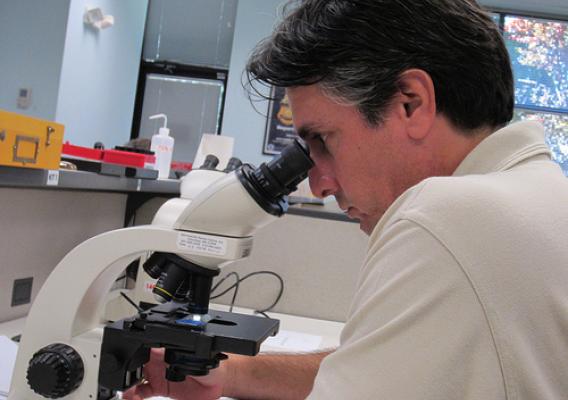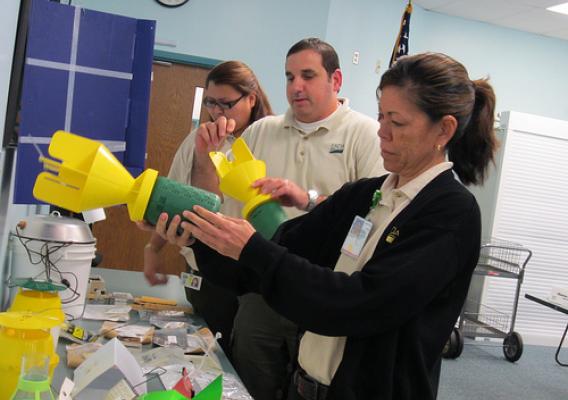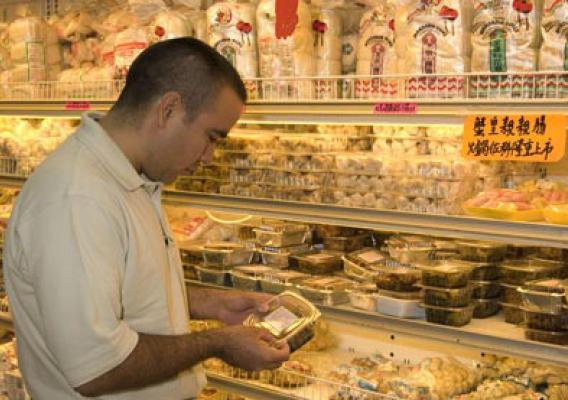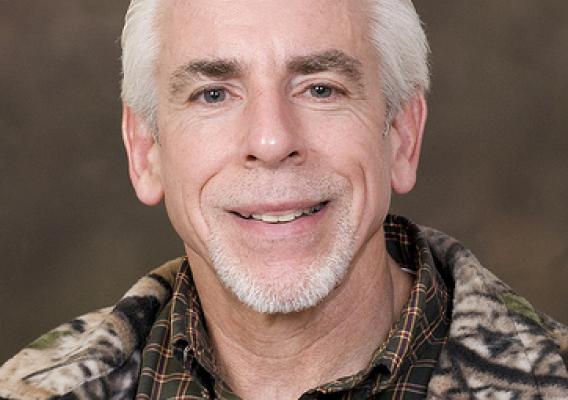Hello, I’m Dr. Bill Huls, Facilities Manager with USDA APHIS’s Center for Veterinary Biologics (CVB). I have been with APHIS since 2002. The CVB regulates the industry that manufacturers veterinary biological products including animal vaccines and diagnostic test kits. I communicate with firms on a daily basis to help ensure they are maintaining compliance with federal regulations. This includes managing documents and items that relate to those firms – things like policies and procedures used by the manufacturer to prepare their products, procedures for who enters and exits the facility, the organization and arrangement of the facilities they make their product in, etc. I also conduct inspections of facilities that manufacture biological products. The work performed by the CVB helps ensure both animal and human health is safeguarded.
I decided to become a veterinarian when I was 18 after spending time with a veterinary practitioner in my hometown. Following completion of veterinary school I joined a small animal practice. Eventually, I bought my own practice. My practice years allowed me to have some pretty cool and challenging experiences.




